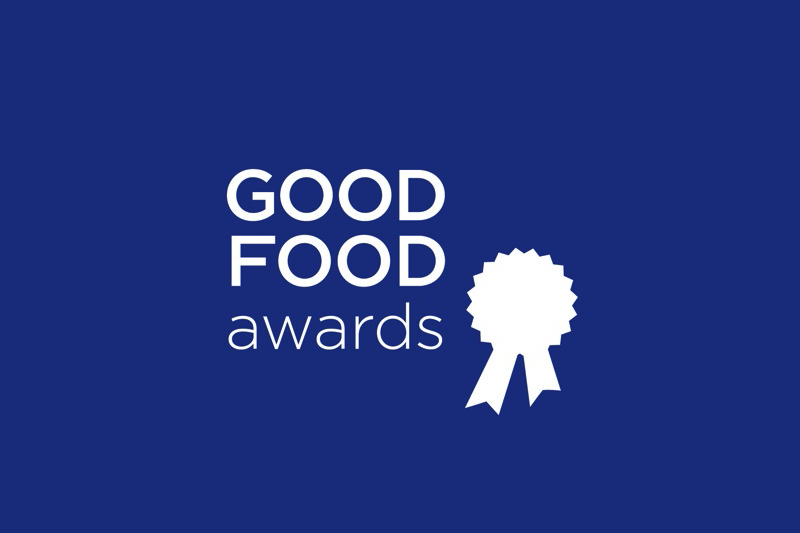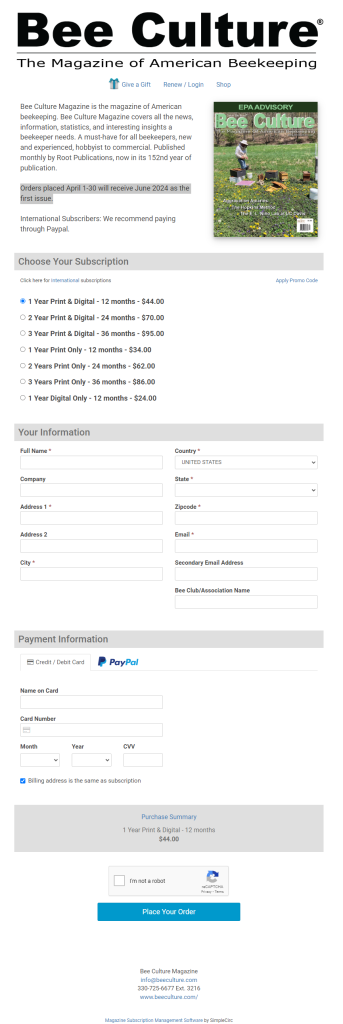Would you believe that the food and drink the Good Food Awards celebrate – from spirits to cheese to honey – represent a greater portion of America’s gross domestic produce than the cattle and pork industries combined? At over $200 billion in revenue each year, it’s true. By shining a spotlight on the taste-making crafters at the vanguard of deliciousness and social and environmental excellence, the Awards catalyzes a shift in spending towards truly good food, and the rest of the industry follows.
Finalists
After a completely blind tasting in September, Finalists were announced in November. Finalists are the five highest scoring entrants in each category from each region of the country – North, South, East, West and Central. Of these, three in each region become the Winners. All companies that score well on taste undergo a rigorous vetting process to ensure they meet the Good Food Awards Standards before being named Finalists or Winners.
Pollinate your tastebuds with…
Honey
There are over 300 unique types of honey in the U.S. The Good Food Awards will showcase honeys most distinctive in clarity and depth of flavor, produced by beekeepers practicing good animal husbandry and social responsibility. From rooftop urban hives to busy bees pollinating organic orchards and meadows filled with wildflowers, awards will be given out in Liquid & Naturally Crystallized, Creamed, Comb and Infused Honey subcategories.
About
The Good Food Awards rely on the expertise of the honey community to create the tasting, determine judges and set standards for the category. Read on to learn who has been integral to building the category, as well as what the honey standard are and who will be judging this year.
Committee Co-Chairs
Erin Ferguson, Program Manager at Blue Bottle Coffee – Oakland, CA
Erin has been a dedicated GFA participant over the last few years, volunteering as a judge for both the Pantry and Honey Categories. She is a backyard beekeeper and sustainable food enthusiast who has worked for Blue Chair Fruit, an artisan jam and marmalade company, and at Blue Bottle Coffee, a specialty coffee chain based in Oakland, CA.
Christina Joy Neumann, Owner and Beekeeper at Apoidea Apiary – Pittsburgh, PA
Christina is the owner and beekeeper of Apoidea Apiary, an artisan honey company and design studio in Pittsburgh, Pennsylvania. As a Carnegie Mellon-trained architect with a focus in sustainable design, Christina’s interest has always been in gaining greater understanding of how human dwelling can more symbiotically work with the natural world. Since 2003, she has been developing her design practice by partnering with a diversity of bee species to both acquire deeper knowledge of bee-beneficial landscape integration and to explore all the wonderful craft the bee world inspires.
Committee Members
Mark Carlson, San Francisco Beekeeping Instructor, California Master Beekeeper (2017, Apprentice Level)
Kim Flottum, Editor, Bee Culture Magazine
Billy Synk, Director of Pollination Programs for Project Apis m. and Manager of Seeds for Bees Project
Standards
In order to be eligible for a Good Food Award, honey entries must meet the following standards:
• Produced in the USA or US territories.
• Be the bona fide product of the entrant’s own bees.
• Harvested between August 2017 and August 2018.
• Extracted with minimal heat (100°) and, after extraction, not exposed to heat greater than 120°.
• Strained and/or filtered to leave in pollen.
• If made with inclusions (such as fruit and herbs):
o If grown domestically, they are locally sourced wherever possible; traceable; and grown without the use of synthetic herbicides, pesticides, fungicides or fertilizers.
o If not grown domestically on a commercial scale, they are farm-direct, certified organic or Fair Trade certified.
Additionally, beekeepers who own and/or manage the bees locally and extract the honey must:
• Practice good animal husbandry, including:
o Do not locate hives within a five-mile radius of crops that receive heavy usage of agrochemicals.*
o Do not regularly relocate any hives major distances for commercial pollination services.**
o Manage hives using minimal chemical interventions (miticides, antibiotics, etc.), in response to need and never prophylactically, following prescribed application guidelines.
o Feed balanced nutrition when needed, that is non-GMO and free of high fructose corn syrup and artificial ingredients, including colors, flavors and preservatives.
o Practice social responsibility, including:
o Engage their community in education.
o If staff is employed in tending the hives and harvesting the honey, they are treated respectfully and given fair compensation.
*The Good Food Foundation acknowledges that the 5-mile range will exclude entry of honeys harvested in areas of agricultural acreage in the Midwestern heartland, California’s Central Valley and other heavily farmed sections of the country This criterion reflects our concerns for the long-term health of bees in monoculture farming and the higher presence of trace chemicals in honeys from areas of heavy agrochemical application.
The Good Food Foundation has deep respect for the work of all beekeepers who are practicing responsible husbandry and caring for the health of pollinators. We therefore invite beekeepers in these conventionally-farmed regions, who are creating healthy, abundant, diverse, agrochemical-free pollinator habitat, to enter. They will be asked to provide compelling documentation of their work to balance the surrounding environs by providing plentiful local forage for their hives.
**Hives may be moved short distances for appropriate forage.
Subcategories
Additionally, honey entries must fit within one of the following subcategories:
• Liquid & Naturally Crystallized, Creamed, Comb or Infused
Judges
Binta Ayofemi, Founder, SOUL
Micky Davis, Chef Educator of the Edible Schoolyard, Greensboro Children’s Museum
Amina Harris, Director, UC Davis Honey and Pollination Center
Carla Marina Marchese, Founder, American Honey Tasting Society
Jan Hammock, Owner/ Design Entrepreneur, Millie Lottie
Lilian Wang, Designer, Open Table
Sadie Scheffer, Founder & CEO, Bread SRSLY
Emma Piper-Burkett, Filmmaker
Cora Schoppe, User Experience Designer and Part-Time Farmer, Cisco and Little Berg Farm
Sean Taylor, Winemaker, Chocolate Maker and Maker of Fermented Goods, Nomad and ratemywinemaker.com
Maria Zizka, Cookbook Writer
Catherine Trujillo, VP of Marketing & Sales, Rubicon Bakers
Honey Finalists
Akaka Falls Farm, Melalaucea, Hawaii
Beverly Bees, Raw Massachusetts Wildflower Honey (Danvers) & Massachusetts Wildflower Honey Comb, Massachusetts
Bloom Honey, California Sage Honey & Organic Turmeric Infused Orange Blossom Honey, California
Cascade Girl, Honey, Oregon
C & C Orchards, New York Wildflower Honey, Massachusetts
Circe’s Run, Upland Wildflower Honey, Virginia
Dances with Bees, Sumac Honey, Georgia
Hippie Chick Apiary, Culpeper Golden Wildflower, Virginia
Honey Bean Farm, Buck Moon Honey, Massachusetts
Kitchen Kulture, KK Honey, Missouri
MtnHoney, Sourwood Honey, Georgia
Sequim Bee Farm, Wildflower Spun Honey, Olympic Mountain Wildflower & Dungeness Valley Lavender, Washington
Sola Bee Farms, Wild Blackberry Honey & Sacramento Valley Wildflower, California
Tewksbury Honey, Spring Harvest 2018, Massachusetts
To Bee Young Apiaries, Solstice & Arden Hills Gold, California
Williams Honey Farm, Southall Farms Wildflower Honey, Tennessee
The 2019 Winner announcement will be made on Friday, January 11, 2019.
The Winners will be announced on Friday, January 11, 2019, at a 1,000 person gala in the historic San Francisco War Memorial & Performing Arts Center, followed by two days of celebration including the public Good Food Awards Marketplace (Tickets: $5) and the industry-only Good Food Mercantile. A limited number of tickets are available to join the Winners and honorary host Alice Waters at the Awards Ceremony (Tickets: $235)









